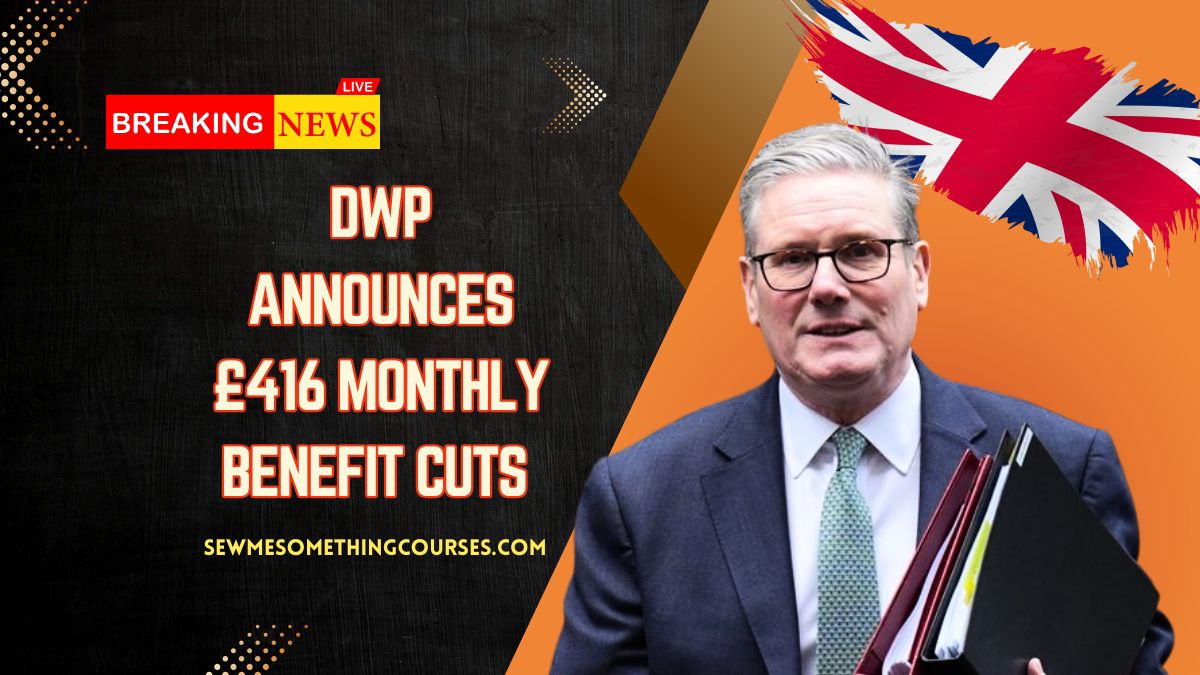The latest changes to the UK welfare system, announced by the Department for Work and Pensions (DWP), are causing significant concern for many families.
With cuts of up to £416 per month, these reforms are expected to affect thousands of households already struggling to meet basic needs. In this article, we’ll break down the DWP’s benefit cuts, who is most at risk, and what families can do to navigate this difficult situation.
Why Are Benefit Cuts Happening?
The DWP claims that the welfare system is becoming unsustainable, with benefit costs, especially those related to incapacity, having risen sharply from £52 billion to £65 billion in just five years.
The government argues that the current system discourages work and encourages fraud and overpayments.
However, critics argue that the cuts overlook the real issues: many recipients are unable to work due to disabilities, family caregiving responsibilities, or lack of available jobs in their area. These cuts are not just about savings—they are impacting people who need help the most.
Who Is Most Affected by the Cuts?
The DWP’s benefit cuts are not a blanket reduction but are targeted at specific groups. These include individuals on Universal Credit, ESA, and single-parent families. Here’s a breakdown of who will feel the impact the most:
| Affected Group | Possible Loss Per Month |
|---|---|
| Universal Credit (WCA) claimants | Up to £416 |
| ESA recipients with work capability | £300–£400 |
| Single-parent families | £250–£350 |
| Pre-retirement age individuals | £200–£350 |
Over 450,000 households will be affected, and many will struggle to pay for food, rent, and utilities. This comes at a time when many families were already living on the edge.
Exemptions to the Cuts
There are a few exceptions to the cuts. People who have severe disabilities or are facing terminal illnesses are largely protected from these changes.
Additionally, if you care for a child with complex needs or are in extreme financial hardship, you may be eligible for partial or full exemptions from the benefit cuts.
If you’re unsure about your situation, it’s best to contact the DWP or your local council to get personalized guidance.
Real Stories from Affected Families
These cuts are not just statistics; they have real-world consequences. For example:
- Mary, a single mother in Birmingham, saw her Universal Credit slashed by £300. She is job-hunting but can’t afford childcare and has already missed a rent payment.
- David, a disabled veteran in Manchester, is terrified that the £416 cut will force him to rely on food banks and compromise his independence—something he has fought hard to maintain.
These cases highlight the challenges that families are facing in the wake of the cuts.
What Can You Do If Affected by the Cuts?
If you’ve been impacted by the cuts, there are several steps you can take to seek relief:
- Mandatory Reconsideration: You can request the DWP to review your case within 30 days of the decision.
- Appeal to Tribunal: If the reconsideration is unsuccessful, an independent body can review your case.
- Get Help: Reach out to charities like Citizens Advice, Scope, and Turn2Us for free support and guidance.
Additionally, you may still be eligible for other types of help, such as:
- Emergency Council Support: For food, rent, or energy bills.
- Household Support Fund: Run by local councils using government funds.
- Food Banks: Services like Trussell Trust offer food parcels.
- Debt Help: Organizations like StepChange and National Debtline can assist with managing limited income.
How to Cope with the Cuts
If your main benefits are reduced, there are a few strategies to manage your finances:
- Prioritize: Focus on paying for rent, food, and utilities first.
- Track Spending: Monitor where your money goes and cut back on non-essential expenses.
- Use Comparison Sites: Shop around for cheaper energy, broadband, or insurance.
- Side Gigs: Consider part-time or online work to supplement your income.
- Look for Grants: Some councils and charities offer emergency payments.
Long-Term Outlook
If these cuts remain, the long-term impact could be severe:
- Increased Poverty: More households will fall below the poverty line.
- Higher Demand: Local services like mental health and housing support may be overwhelmed.
- Charity Strain: Local charities could struggle with the increased demand for assistance.
- Political Backlash: The public’s anger over the cuts may influence future elections and policy changes.
The DWP’s goal is to reduce costs and encourage employment, but the reality for many families is that these cuts are exacerbating an already difficult situation.
The £416 benefit cuts announced by the DWP have left thousands of families struggling to make ends meet. While the government argues that these cuts are necessary for fiscal sustainability, many families find themselves facing even greater challenges.
If you are affected, there are steps you can take to seek help and appeal the decision. Don’t wait—reach out for support and take action to safeguard your well-being.
FAQs
How much are the benefit cuts for?
The cuts can affect individuals with losses ranging from £200 to £416 per month, depending on their specific circumstances.
Who is exempt from the cuts?
People with severe disabilities, terminal illnesses, or those facing extreme hardship may be exempt from the cuts.
What should I do if I’m affected by the cuts?
You can request a mandatory reconsideration, appeal to a tribunal, or seek help from charities and local councils.

